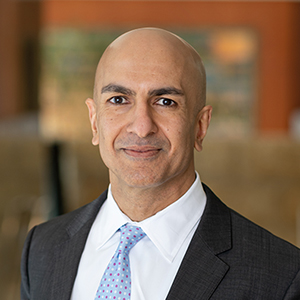We launched the Opportunity & Inclusive Growth Institute in 2017, driven by contradictions we saw in the economy of the Ninth Federal Reserve District. Our region has a remarkably diverse economy and some of the highest educational achievement in the nation, but it also has sharp racial and economic disparities. Sadly, these contradictions are not unique to our district. In them, we saw a need for research that could help us at the Fed—and in the policy community more broadly—better understand these contradictions as we strive for an economy that fully includes all Americans.
At the time of the Institute’s launch, the Federal Reserve was grappling with questions that are fundamental to our monetary policy mission: Were we at maximum employment? How would we know it when we got there? In January 2017, the official unemployment rate for the United States was 4.7 percent, on its way to the lowest level in 50 years. Yet, over the next three years the U.S. economy went on to create 6.5 million new jobs. How was that possible? Part of the answer is that those national averages mask important differences across racial, socioeconomic, and geographic dimensions. By connecting with a broad set of scholars and looking at our economy from many perspectives, the Institute would help us to better understand the economy’s full potential and thus help us better achieve the important goals Congress has assigned us.
What has happened since then?
The pandemic and ongoing inflation pressures have amplified some of these disparities, posing new challenges. The health and economic impacts of COVID-19 have been very unequal across income, race, and geographic regions. And the highest inflation in 40 years—in part a reflection of the bumpy reopening of the economy as well as the global food and energy crisis fueled by the Russian invasion of Ukraine—is without question unfairly punishing low-income households and communities more than wealthier ones.
In response to these challenges, the Institute has been actively contributing to timely research-based policy debates. For example, the Institute’s early call for ambitious surveys to understand the pandemic’s impact on Americans helped inform the work of federal statistical agencies. This effort gave public health researchers access to new tools in record time. Recently, the Institute published new research on long COVID that uses surveys to provide some of the first evidence of the condition’s impact on labor markets. The Institute was also early to bring together researchers on the unequal impacts of inflation, hosting an event that outlined the key issues in spring 2022. At the same time, the Institute continues to pursue and support long-term research on questions of opportunity and economic inclusion, such as how families provide for retirement, the origins of wealth gaps, and the labor market power of firms.
It has been more than five years since we launched the Institute. While the time has gone quickly, I am proud of what its leaders, staff, visitors, and advisors have accomplished in that time. I am even more optimistic about the Institute’s potential to make a meaningful contribution to help the Federal Reserve fully achieve the goals that Congress has assigned us and also to equip other policymakers with data and analyses they need to implement policies that can help all Americans fully participate in our economy’s potential.






